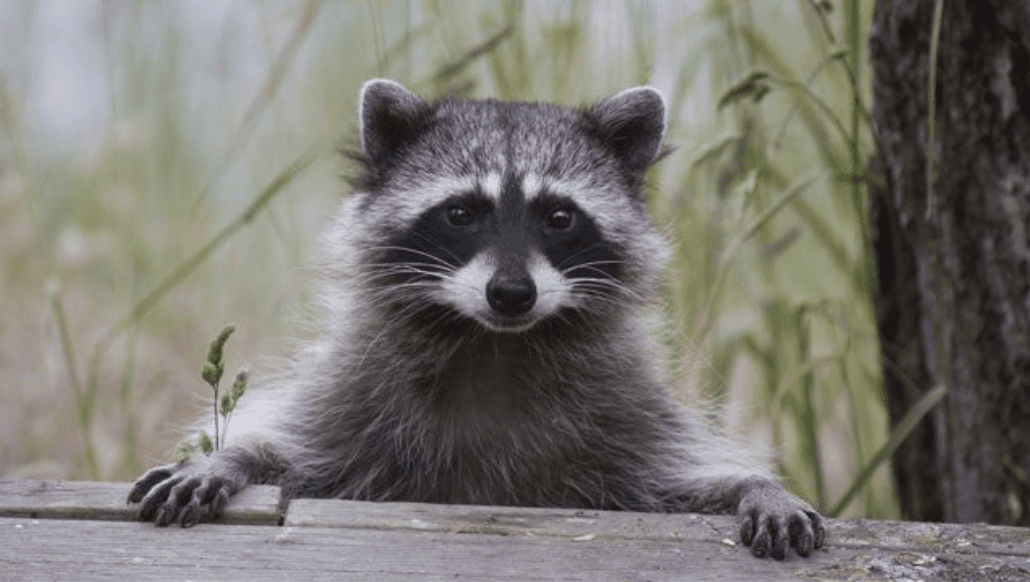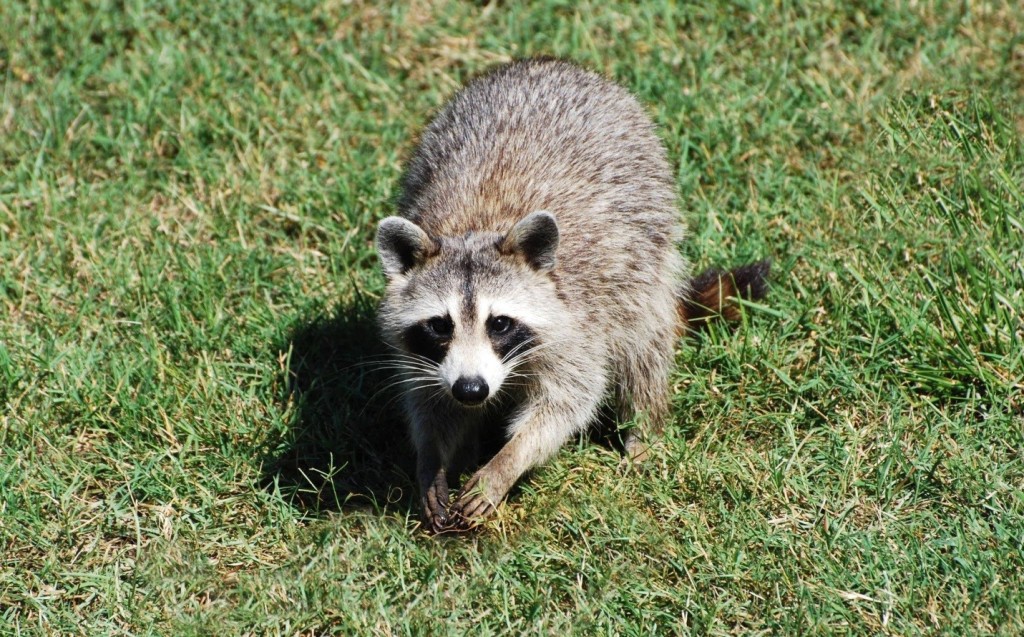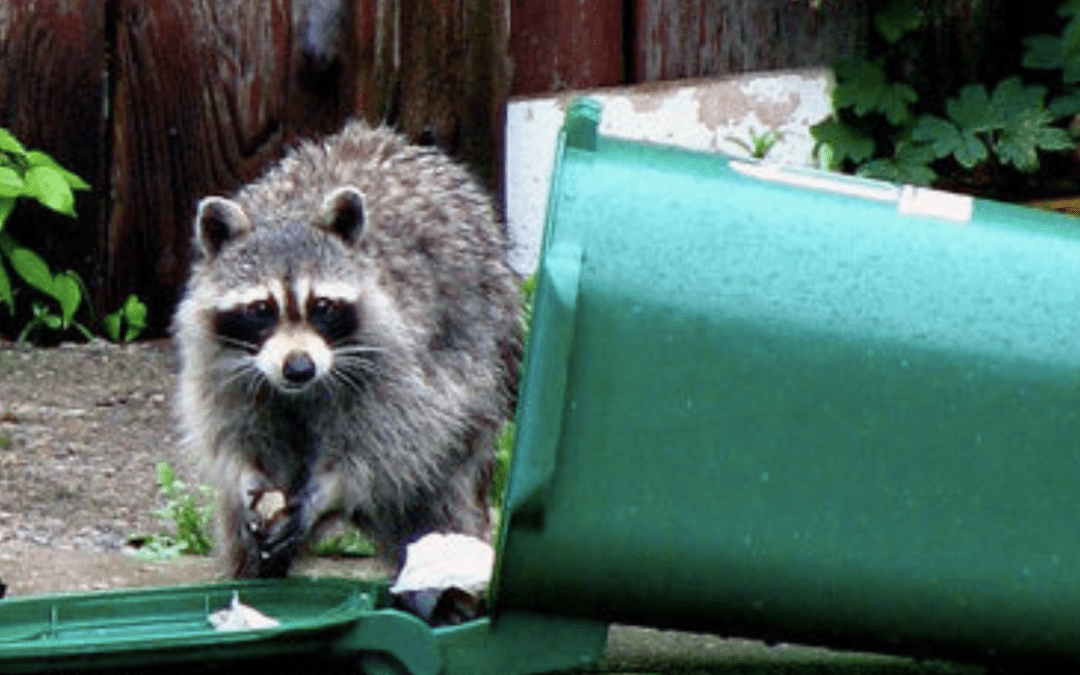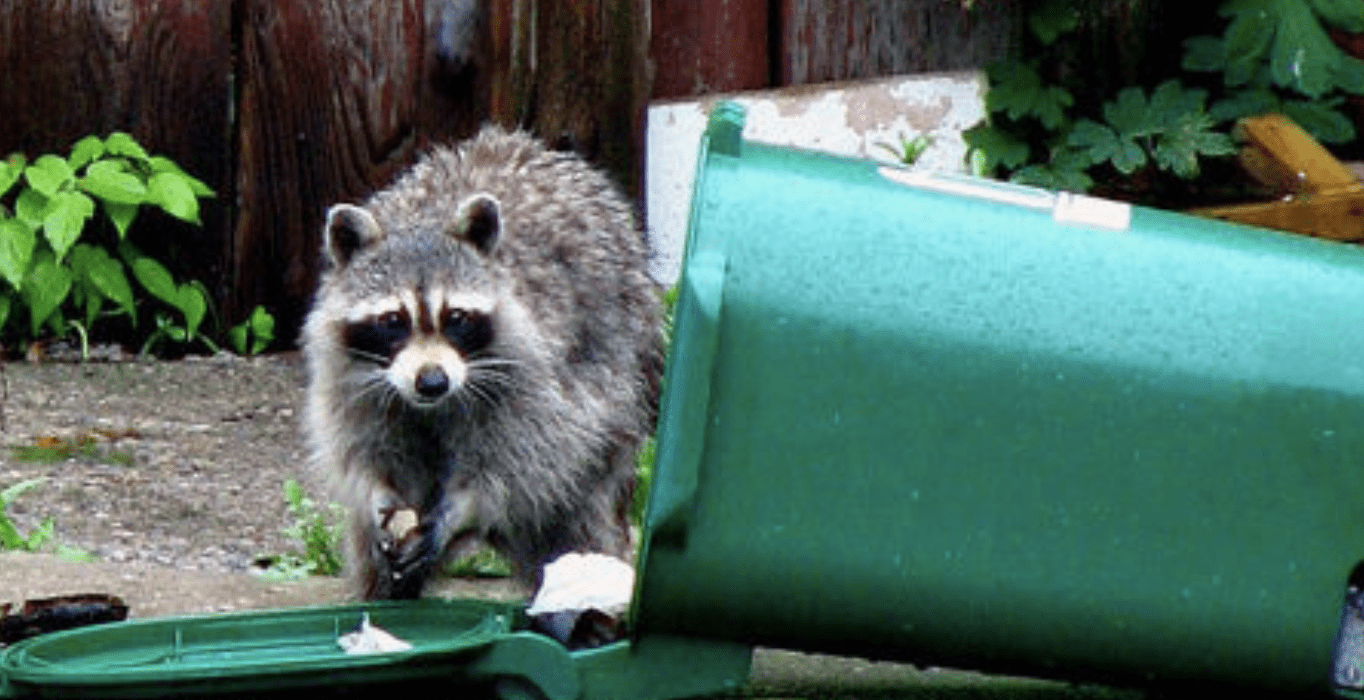
Why Are Raccoons Considered Pests?
Few people can resist the dangerous amount of cuteness of raccoons. The narrow, pointy muzzle, the large black eyes ringed with white, the front paw fingers resembling human hands, and the striped bushy tails make the little buggers hard to resist. Not to mention their extraordinary intelligence and ability to get into almost any place, pick locks, pull out drawers, and open door latches in search for food, rightfully earning their reputation as the “masked bandits.”
But as awesome little animals as they may be (sometimes competing with dogs and cats for people’s affection), raccoons remain wild animals with a destructive nature. Due to the major property damage they cause to the house and garden, they are usually not welcomed on people’s property and considered pests. So Why Are Raccoons Considered Pests?
Damage to House
- Stink up the place: During spring, females will start looking for a safe place to stay and give birth to their babies, and the warmth and comfort of your house can easily make it a perfect substitute for a natural den. And although they aren’t out to ruin your home or endanger your health, they can do both by moving into your attic, getting inside the chimney, or taking residence inside wall voids or under decks.
- Destroy insulation: Since they are large mammals (weighing between 11 and 14 kg), raccoons can easily trample insulation just by walking on it. Pregnant females will compact large areas to sleep and nurse their babies, causing extensive damage and reducing the insulation’s effectiveness in keeping the house cool in summer and warm during winter.
- Damage roofs: To gain access inside a structure, to obtain bedding material, or sometimes just for fun, raccoons will rip off shingles, break or chew fascia boards, chew holes into soffits, rip apart ducts, or break attic vents. A small opening (usually no larger than 4-6 inches) is enough for the rascals to get inside.
Damage to Garden
- Damage crops: Raccoons are particularly fond of a sweet corn garden, which they will invade a couple of days before harvest. They rarely damage corn until mid-June, which marks the beginning of the corn reproductive stages (the milk stage of development). Depending on the size of the plant and the height of the animal, raccoons will either feed standing up or climb the stalk to get to the higher ears. For the affected crops, this type of damage often results in 90-100% yield losses.
- Kill poultry: Raccoons can reach through the wire of cages and pens to get to the poultry kept inside, and many times they mutilate the birds by trying to pull them through the wire by their head or legs. Their MO involves biting off and tossing adult birds’ heads, chewing the contents of the crop and sometimes the chest, and throwing the rest away.
- Dig up soil and damage lawns: Raccoons, as well as skunks, can turn out to be a real problem for homeowners, particularly in the spring and fall, when they start looking for earthworms, grubs, and other soil insects through the freshly laid turf. This is usually done by young raccoons that are learning to find food on their own or during periods when other food is scarce.
- Use your woodpile as their latrine: Raccoons typically dump their feces in communal sites called latrines, and they usually prefer to leave their droppings at the base of a tree, on logs and stumps, or inside a woodpile. If you’re storing firewood outside, and your house is often visited by raccoons, chances are they either use the woodpile as a latrine, endangering the health of anyone who comes into contact with their contaminated urine and feces, or use it as a temporary den.
How Can You Stop Them?
Raccoons in many urban and suburban environments are learning that residential properties are safer, warmer, and more comfortable than the usual hollow trees they use as denning sites; moreover, they also provide a seemingly infinite supply of food and water. Convincing them to leave is, thus, a rather challenging task, especially considering their persistence and resourceful nature.
If you have been noticing raccoon damage around your house and outbuilding, the best thing to do is let professionals handle the difficult, and sometimes outright dangerous, task to deter the animals from your property. A combination of exclusion techniques, scare tactics, and trapping will likely be used to eliminate existing populations and limit raccoon nuisance on your property. Contact your local company to schedule an inspection and determine the size of your problem and the best course of action.
Pigeon Patrol Products & Services is the leading manufacturer and distributor of bird deterrent (control) products in Canada. Pigeon Patrol products have solved pest bird problems in industrial, commercial, and residential settings since 2000, by using safe and humane bird deterrents with only bird and animal friendly solutions. At Pigeon Patrol, we manufacture and offer a variety of bird deterrents, ranging from Ultra-flex Bird Spikes with UV protection, Bird Netting, 4-S Gel and the best Ultrasonic and audible sound devices on the market today.
Contact us at 1- 877– 4– NO-BIRD, (604) 585-9279 or visit our website at www.pigeonpatrol.ca
Pigeon / Pigeon Patrol / Pigeons Roosting / Vancouver Pigeon Patrol / Bird Control / Surrey Pigeon Control / Pest / Vancouver Pigeon Blog / Birds Inside Home / Pigeons in the cities / Ice Pigeons/ What to do about pigeons/ most common types of sparrows , Damages Caused by Sparrows, How To Keep Raccoons Away, Why Are Raccoons Considered Pests?de-fence, Pigeon Nesting and Breeding Patterns and Behavior What Do I Do With a Bird Trapped in My Wall? Professional Bird Control Company Keep The Birds Away From Your Business Why Are Raccoons Considered Pests?



